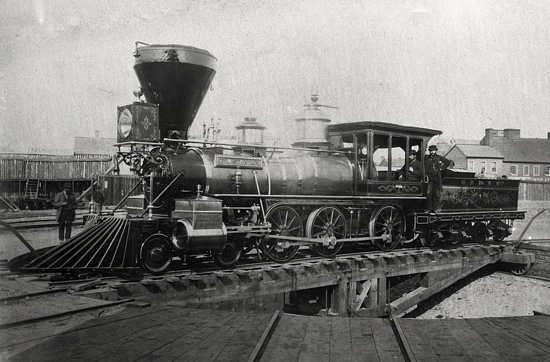Civil War: The dangerous business of life in Richmond
April 1864 brings a surprising number of gruesome accidents and incidents to Civil War-era Richmond.

Hello and welcome to April 1864! Exactly one year until the end of the Civil War–but don’t worry, we’re just getting to the good part. Richmond, and her southern neighbor Petersburg, play a pretty central role to the final year of the war, so we’ll have lots to cover.
When I set out to write this article, I’d planned to document the accidental death of a prominent figure in Richmond, but as I dug into various articles from April 1864, I found a surprising number of stories of gruesome accidents and incidents, so I thought I’d share them here. I don’t think Richmond was particularly more dangerous this month than any other, but I think collectively these stories help tell the story of a city in wartime.
Our first tragic story took place roughly where The National Theater stands right now and involves an attempted train hopping gone wrong:
HORRIBLE ACCIDENT. – On Saturday evening, about one o’clock, while some empty cars on the Fredericksburg railroad were being backed down the track on Broad street, between 6th and 7th street, a youth named Joseph Rowe, fifteen years of age, attempted to jump on the foremost car by catching hold of the coupling iron. The coupling iron slipping aside as he laid his weight upon it, he was thrown across the track, when the wheels of the car passed directly across his neck, cleaving his head from the body. Death was, of course, instantaneous. The boy was the son of a poor widow of Fredericksburg, who had been adopted by Mr. Thos. Jones, of that place, but at present residing here. A handsome coffin was provided and the body was decently interred at the expense of the Fredericksburg Railroad Company. This is not by many the first accident we have had to record as happening on the railroad on Broad street, nor will it be the last, unless some action is taken in the matter by the City Council. The railroad company do all they can, but are unable to prevent crowds of boys from riding and playing about their trains. Richmond Whig, 3/28/1864
Our next incident also involves railroad tracks, but was far from an accident. A hospital patient from Chimborazo Hospital (located in Church Hill) was so determined to not return to the front lines, that he took matters into his own hands:
Anxious to Leave the Army. – At five o’clock Sunday evening as the up train on the York River Railroad was passing in rear of Chimborazo Hospital, a soldier, believed to be from the Hospital, deliberately laid his left hand upon the track and allowed the driving wheels of the engine to pass over his fingers. The only motive we have heard attributed to the man is an overwhelming desire to avoid further military service. Richmond Dispatch, 4/5/1864
We don’t want to give the railroad all the credit for April’s mayhem–we have a population of armed Confederate soldiers and prison guards to help contribute their fair share. Incidents of death or wounding by firearms, both intentional and accidental found their way to the pages of Richmond’s newspapers quite often:
Yankee Officers Shot. – While the prison guard at the Libby were drawn up in front of that building, on Tuesday morning, loading their guns, the piece of private Charles Webber, of the 18th Virginia battalion, accidentally exploded, whilst he was in the act of capping it, and the bullet passed in at one of the prison windows, wounding Lt. James Kelly, of the 100th Ohio, and killing Lt. G. D. Forsyth, of the same regiment. That the shooting was purely accidental was established by the testimony of a number of witnesses, among whom were several Yankee officers.Richmond Sentinel, 4/14/1864
Richmond’s most notable (and tragic) accident of April 1864 resulted in the death of 5-year-old Joseph Davis, son of Confederate President Jefferson Davis:
Melancholy Accident – A Child of President Davis Killed by a Fall. – Saturday evening the Presidential mansion in this city was the scene of a most melancholy occurrence. At 5 o’clock that evening one of the servants discovered President Davis’s third child, a little boy five years old, named Joseph, lying in an insensible condition on the ground, in view of the back porch, with blood oozing from his mouth and nose and one of his thighs broken. The child had evidently fallen over the railing of the porch, a distance of, perhaps, twenty feet. None of the President’s family being in the house at the time, the ladies of the neighborhood were called in and medical aid sent for. Every effort was made to revive the little sufferer but without success. – The child continued to sink, and expired at a few moments before seven o’clock, having lived about two hours after the discovery of the accident. How long after the accident before it was discovered is not known. Richmond Sentinel, 5/2/1864
Jefferson Davis was no stranger to tragedy. He lost his first wife to malaria only three months after they were married. Of the six children he had with second wife Varina, only two daughters would live to adulthood. Joseph, however, was the only son he lost during the war. Union President Abraham Lincoln also lost his son William during the war, who passed away from illness in February 1862.
Even on the home front, away from battle, war continued to take its toll on Richmond.
-
Recommend this
on Facebook -

Report an error
-

Subscribe to our
Weekly Digest




There are no reader comments. Add yours.